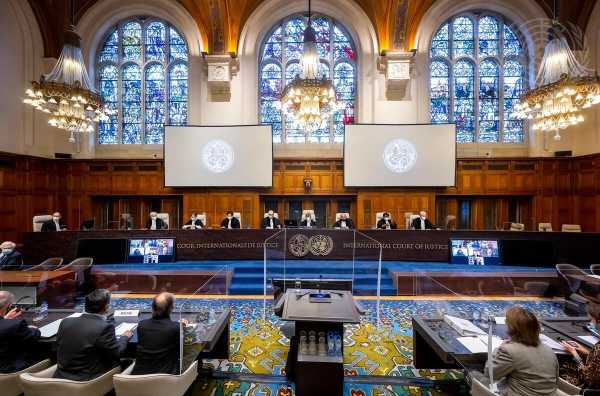Konferenzsprache: Englisch
Intersecting and novel types of global risks and crises are accelerating while the existing multilateral structures are struggling to find appropriate responses. This is due to the fact that these structures are still based on a 19th/20th century architecture – designed to meet the challenges of the last century. With his report “Our Common Agenda”, published in September 2021, UN Secretary-General António Guterres has initiated a process which aspires to transition the United Nations, the heart of the international architecture, into a body prepared for the 21st century.
In “Our Common Agenda”, Guterres names the strengthening of international law as a central pillar in this regard and calls for a global road map for the development and effective implementation of international law. The European Union endorsed this call during the informal consultation on the Agenda at the UN General Assembly in February 2022. Among other things, the EU expressed its hope for an early conclusion to the negotiations on an international treaty on the conservation and sustainable use of marine biological diversity and the advancement of the work towards a Convention on the prevention and punishment of crimes against humanity. In view of the growing geopolitical tensions, but also the double standards practised by Western states for decades, this may sound like wishful thinking.
However, the current escalation of crises and conflicts could also become a turning point for a realignment of the multilateral system. And indeed, there are signs in some areas that progress may be possible against all the odds, such as the creation of an International Anti-Corruption Court, advances in global environmental governance, or the current negotiations on a global agreement on pandemic preparedness and response.
How are these glimmers of hope to be assessed? What further progress could the “Our Common Agenda” process bring about? What is the EU’s specific contribution to this process and to current initiatives to strengthen and respect international law? What other fora and processes could promote a realignment of the international community and, particularly, a strengthening of international law?
Veröffentlichung zum Thema
Global Governance Spotlight 1|2022
Revitalizing International Law: Making the Multilateral System Fit for the Future
Maja Groff
Mai 2022; 4 Seiten


